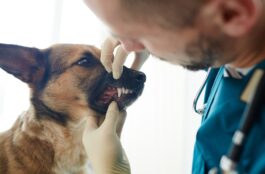
Bringing a new puppy into your home is as exciting as it is daunting, especially when it comes to keeping your furry friend healthy. Whether it’s their heart-melting eyes or their endless energy, puppies can bring unmeasurable joy to a household. However, these little bundles of joy can also unwittingly carry some unwelcome hitchhikers: parasites. Our lovable pups can be prone to these pesky invaders, but routine health checks can be a game-changer in stopping infestations in their tracks.
As a responsible pet owner, it’s critical to understand how regular vet visits, timely precautions, and some simple know-how can prevent parasites from affecting your puppy’s health and from spreading within your home. Let’s look into the world of puppies and parasites and find out what we can do to tackle the issue head-on.
Routine Health Checks
When we welcome a puppy into our family, we sign up for more than just cuddle sessions and playtime. We’re also committing to protecting their health. Routine health checks play an indispensable role in spotting and stopping parasites before they can become a full-blown problem. But what do these exams actually do for your pup?
Health Exams in Identifying Parasites
Right, so you’ve booked your first vet visit, or you’re planning to. What can you expect? Your vet will give your puppy a thorough physical examination to check for any signs of illness, which includes looking for telltale signs of parasitic infections. These signs can be subtle or more obvious, depending on the type of parasite and how advanced the infestation is.
Common parasites that affect puppies include:
-
Fleas: These can cause scratching, hair loss, and, in some cases, anemia.
-
Ticks: Ticks are not only gross; they also carry diseases like Lyme.
-
Intestinal worms, such as roundworms, hookworms, and tapeworms, can lead to poor growth, a swollen abdomen, and other gastrointestinal issues.
-
Heartworms: A serious threat to your pup’s health, often identified through blood tests.
-
Mites: These can lead to skin issues such as mange.
By catching these little critters early, you can prevent them from becoming a bigger problem that can affect your pup’s growth, well-being, and comfort.
Preventive Care
Routine vet visits don’t just diagnose; they also prevent. Vets often administer preventative treatments during these checks, like veterinary vaccinations and anti-parasite medications. The vaccinations include shots to protect pups from common canine diseases, and the anti-parasite treatments help keep those pesky pests at bay. Remember, prevention is always better than cure.
Combatting Puppy Parasites
We’ve got the vet visits down, but fighting parasites is a team sport. There are several things we can do at home to ensure our puppies stay parasite-free.
1. Keep a Clean Environment
Parasites thrive in dirty conditions, so keeping your puppy’s living area clean is crucial. Regularly washing their bedding and vacuuming your home can drastically reduce the risk of infestation.
2. Regular Grooming
Regular baths and brushing not only make your pup look and smell great but also give you a chance to spot any pesky fleas or ticks. Plus, it’s a great bonding experience!
3. Stay Up-to-Date with Preventative Medications
There are a variety of products out there that can protect your puppy from parasites. Tablets, chews, topical treatments, and collars are all excellent tools in your anti-parasite arsenal. Stick to the schedule your vet recommends.
4. Monitor Your Puppy’s Health
Keeping an eye on your puppy’s poop, energy levels, and appetite can alert you to health issues early on. If you notice anything off, don’t hesitate to reach out to a puppy vet specialist.
The Cycle of Parasites
It helps to know how parasites operate. Many of them have a life cycle that includes stages outside the puppy’s body. For instance, some worms can lay eggs that are passed out in the puppy’s poop, which then hatch into larvae and can be picked up by another animal or even a human. If we understand the cycle, we can break it and protect our puppies and ourselves.
Breaking the Parasite Life Cycle
Disrupting this cycle can involve:
-
Proper disposal of pet waste to prevent the spread of eggs or larvae.
-
Avoid areas with high parasite infestations, like communal dog areas known for outbreaks.
-
Regular vet check-ups to catch any infestations before they can spread.
If you’re in the area, a vet check up in Santa Clarita, CA, might be your next step in ensuring your puppy is healthy and parasite-free.
How Vets Can Help Stop the Spread of Parasites
Vets are your allies in the fight against parasites. They have the expertise to recommend effective treatments and can give advice tailored to your puppy’s specific needs and environment. With their help, you can create a defense plan that’s safe and effective.
When to Seek a Vet’s Help
There are several instances when you should seek your vet’s assistance right away:
-
Your puppy shows signs of infestation, such as scratching, lethargy, or weight loss.
-
There’s been a known exposure to parasites, like after visiting a dog park.
-
When it’s time for your puppy’s regular preventative care.
Final Thoughts
Wrapping things up, puppies, as adorable as they are, can sometimes bring along tag-along that we’d rather not deal with. Parasites are a common problem, but with routine health checks and a bit of proactive care from us, they can be stopped in their tracks. Instead of worrying over what might happen, taking action through regular cleanups, doctor visits, and preventive care can save you and your puppy from the hassle and discomfort of parasite infestations. Consider this your gentle nudge to schedule that vet appointment, keep up with the grooming, and embrace being the super pet parent your puppy thinks you are.


